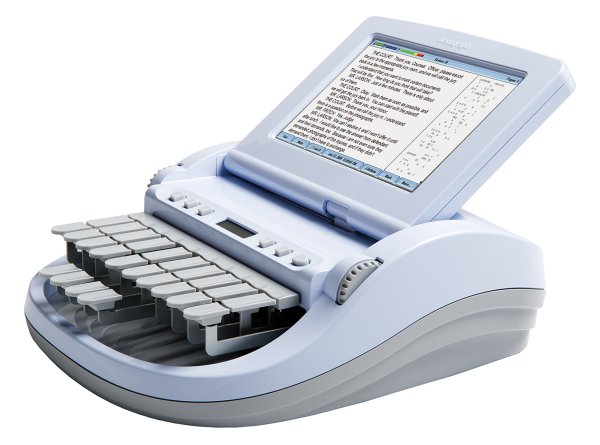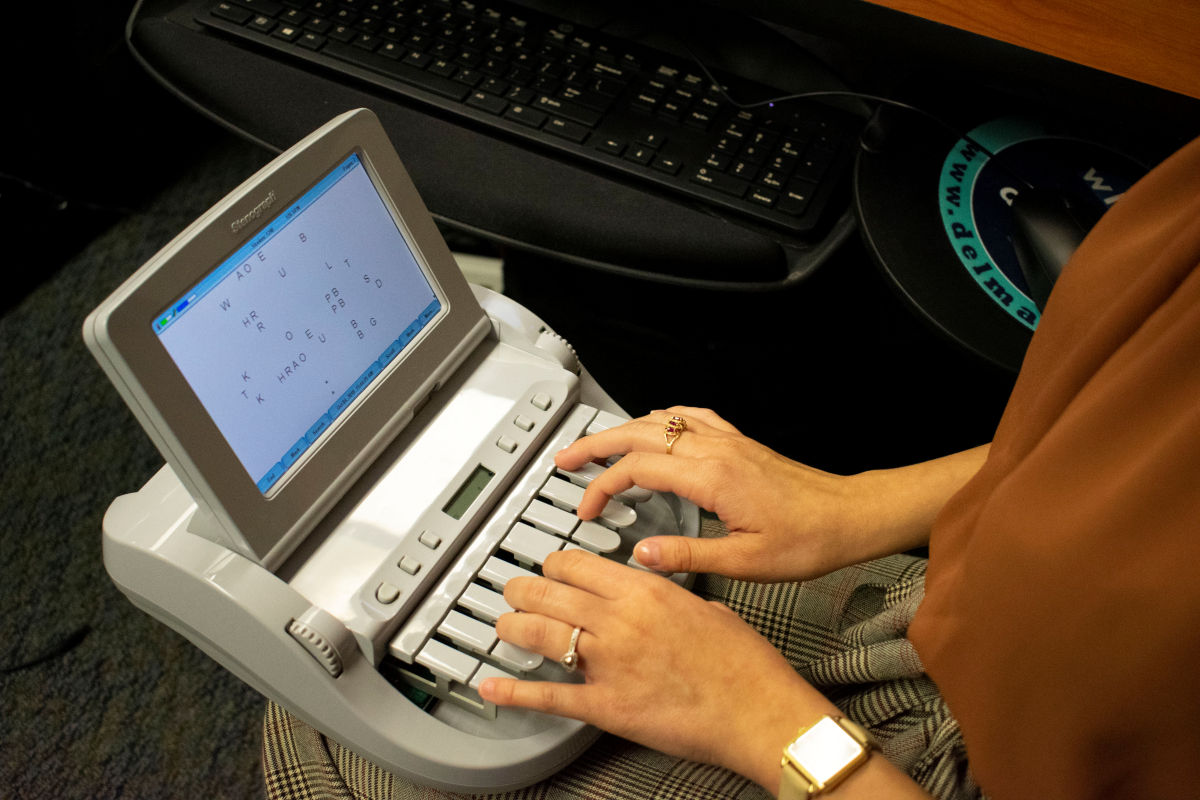Court reporting Explained: How It Works
Court reporting Explained: How It Works
Blog Article
Understanding the Vital Role of Court Coverage in Legal Procedures
Court coverage is typically forgotten, yet it's crucial in lawful process. You could not recognize just how court press reporters ensure every word talked is taped properly, affecting choices made by discretionary. Their skills and innovation play a considerable duty in preserving the honesty of legal documents. But exactly what does the procedure involve, and how has it advanced over time? Allow's check out the fundamental features of court reporting and its significance in the lawful landscape.
The History of Court Reporting
Court coverage has a rich background that dates back to old worlds, where scribes used various methods to record spoken words. By the 16th century, modern shorthand systems started to take shape, allowing court press reporters to create accurate records successfully.
Today, court press reporters play a significant duty in lawful procedures, making sure that every word talked in the court room is accurately recorded. Recognizing this history highlights the relevance of court coverage in maintaining a fair lawful system.
The Abilities Required for Court Reporters
As a court reporter, you require strong keying skills to maintain up with the hectic discussion of lawful procedures. Your capability to pay attention attentively is simply as crucial, making certain every word is caught accurately. Mastering these skills is essential to providing specific and trustworthy records.
Proficient Inputting Capacities

Strong Paying Attention Skills
Strong listening abilities are important for court press reporters, as they need to properly catch talked words in actual time. This ability assists you differentiate between speakers, comprehend legal jargon, and adhere to complex conversations. Inevitably, solid listening skills make you an important asset in lawful procedures, making certain clearness and precision in the court document.
The Technology Behind Court Coverage
In the domain name of lawful process, technology plays an essential role in improving the accuracy and effectiveness of court reporting. You're most likely familiar with the standard stenotype machine, but modern-day stenotype reporter now utilize advanced software program that integrates with these devices, enabling real-time transcription. This suggests you can have immediate accessibility to the transcript as the process unravel.
Digital audio recording is an additional technical development that's gaining traction. It captures every spoken word, assuring nothing is missed out on. Some reporters utilize voice acknowledgment software, which can help enhance the transcription procedure, though it still requires human oversight for accuracy.
Furthermore, cloud-based storage space permits very easy access and sharing of transcripts, improving collaboration among legal groups. By leveraging these technologies, court reporters can give high-quality, prompt documents that are essential for the lawful procedure. Embracing this tech not just enhances your understanding but additionally guarantees dependability in legal documents.
The Court Reporting Refine

As lawful procedures unravel, the court reporting procedure comes to be vital in capturing every information properly. You'll locate that a stenotype reporter plays a crucial duty by transcribing spoken words into created text in real-time. When you enter the court room, the reporter is already prepared, furnished with specialized tools like stenographic makers and audio recording gadgets.
During the process, the press reporter pays attention attentively, keying out every little thing stated, from witness testimonies to lawyers' debates. You might observe them pausing periodically to guarantee quality or to request for a repeat if something had not been clear. After the session, the press reporter assesses the records, making required edits for readability.
This entire procedure not just ensures a thorough document but also prepares you for future reference throughout appeals or case evaluations. In the busy setting of a courtroom, the court reporting process is important for preserving an exact account of occasions.
The Significance of Precision in Records
While a court press reporter's key responsibility is to record talked words, the accuracy of these records is crucial for the stability of lawful process. When you're associated with a situation, you count on specific documentation to understand the events and disagreements offered. Any type of mistakes in transcription can result in misconceptions, misconceptions, or even wrongful judgments.
Exact records ensure that every detail is caught, offering a trustworthy document for judges, attorneys, and courts. This level of detail is crucial throughout allures or when referencing past statements. If a records consists of errors, it can threaten the whole lawful process, possibly affecting outcomes.
Moreover, accurate records copyright the rights of all parties included, promoting fairness and openness. So, whether you're an attorney preparing for test or a witness reviewing your testimony, you can rely on that the stenotype reporter's skill in accuracy plays a considerable role in your instance's success.
The Role of Court Reporters in Various Lawful Settings
Court reporters play a necessary function in different legal settings, from tests to depositions and lawful hearings. You'll discover that their work guarantees visit the website every spoken word is accurately captured, which is critical for the legal process. Comprehending exactly how their responsibilities differ across these atmospheres can highlight their effect on the justice system.
Court Reporters in Trials
In any kind of lawful trial, you'll find that court reporters play an essential duty in catching the procedures with accuracy and precision. They record every little thing spoken in the court, making sure that every word is documented for future referral. This record comes to be important for allures, allowing higher courts to assess the trial's integrity. Stenotype reporter have to preserve emphasis and rate, usually using specialized devices to stay on top of fast-paced discussion. Their work supports lawyers, judges, and juries by supplying a main account site web of testimonies and debates. If inconsistencies develop, the records acts as a trusted resource to clarify what was claimed. Ultimately, stenotype reporter help copyright the justice system, guaranteeing transparency and responsibility throughout tests.
Depositions and Lawful Hearings
Beyond trials, court reporters likewise play an important function in depositions and lawful hearings. Throughout these process, they catch every spoken word, ensuring a precise record of testaments and conversations. You'll locate that this accuracy is essential, as depositions frequently act as a structure for later disagreements in court. Stenotype reporter give real-time transcription solutions, allowing attorneys to follow along and address any kind of concerns immediately. Their work enhances the performance of lawful hearings, making this contact form it easier for all parties to refer back to the official document. In addition, the records they generate can be significant for charms and other legal processes - court reporting. In other words, stenotype reporter are vital in preserving the integrity and clearness of the legal record in depositions and hearings.
Future Patterns in Court Reporting
As technology continues to evolve, the future of court reporting promises to be shaped by ingenious devices and techniques that boost accuracy and efficiency. You'll likely see increased use expert system and real-time transcription services, simplifying the reporting process. These innovations can assist you gain access to records quicker, which can be vital for your legal methods.
Furthermore, incorporating video clip conferencing and remote reporting will come to be more typical, permitting you to connect with court reporters from anywhere (court reporting). This adaptability can make depositions and hearings extra easily accessible, conserving both time and resources
You'll also see an emphasis on electronic recordkeeping, which simplifies the storage space and access of records. With cloud-based remedies, you'll have the ability to share records firmly and collaborate with your lawful group in real-time.
Regularly Asked Inquiries
What Is the Ordinary Salary of a Court Press Reporter?
The typical wage of a stenotype reporter varies by location and experience, but you can anticipate it to vary from around $50,000 to $80,000 every year. Lots of factors influence this earnings, including field of expertise and need.
Exactly how Do I Become a Certified Court Press Reporter?
To end up being a qualified stenotype reporter, you'll require to complete a court reporting program, pass an accreditation exam, and gain functional experience. It's vital to stay upgraded on market standards and proceeding education requirements.
What Kinds of Cases Do Court Reporters Cover?
Stenotype reporter cover different instances, including criminal trials, civil suits, depositions, and settlement hearings. You'll find them recording every little thing, ensuring precise records for courts, lawyers, and parties included, catching every word talked in lawful settings.
Are Court Reporters Required to Have a Level?
Yes, court reporters generally require a degree or accreditation in court reporting. Several programs offer specialized training, guaranteeing you get the abilities needed for precise transcription and legal documentation in numerous settings.
Can Court Reporters Job From Another Location?

Report this page